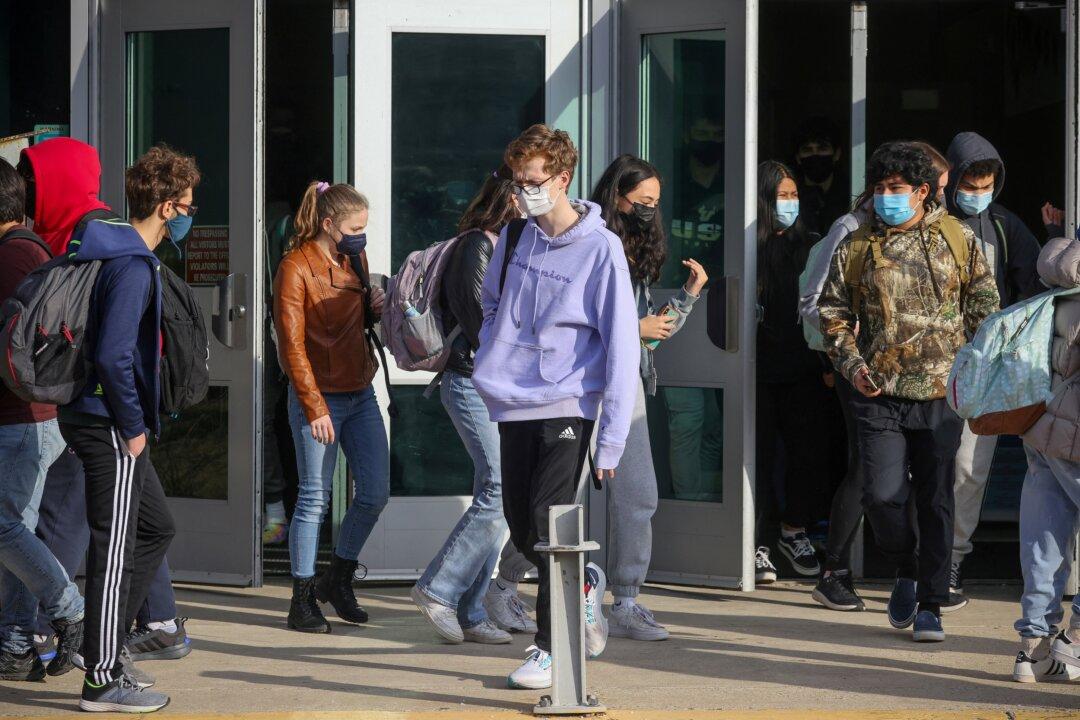Certain schools in Virginia may impose masking requirements despite a state law and executive order that bar such mandates, a federal judge ruled on March 23.
Schools where students of parents who sued over the law and order can require masking, U.S. District Court Judge Norman Moon, a Clinton appointee, said in a five-page preliminary injunction ruling.





